3 Easy Ways to Feel Good About How Much You Spend on Your Engagement Ring
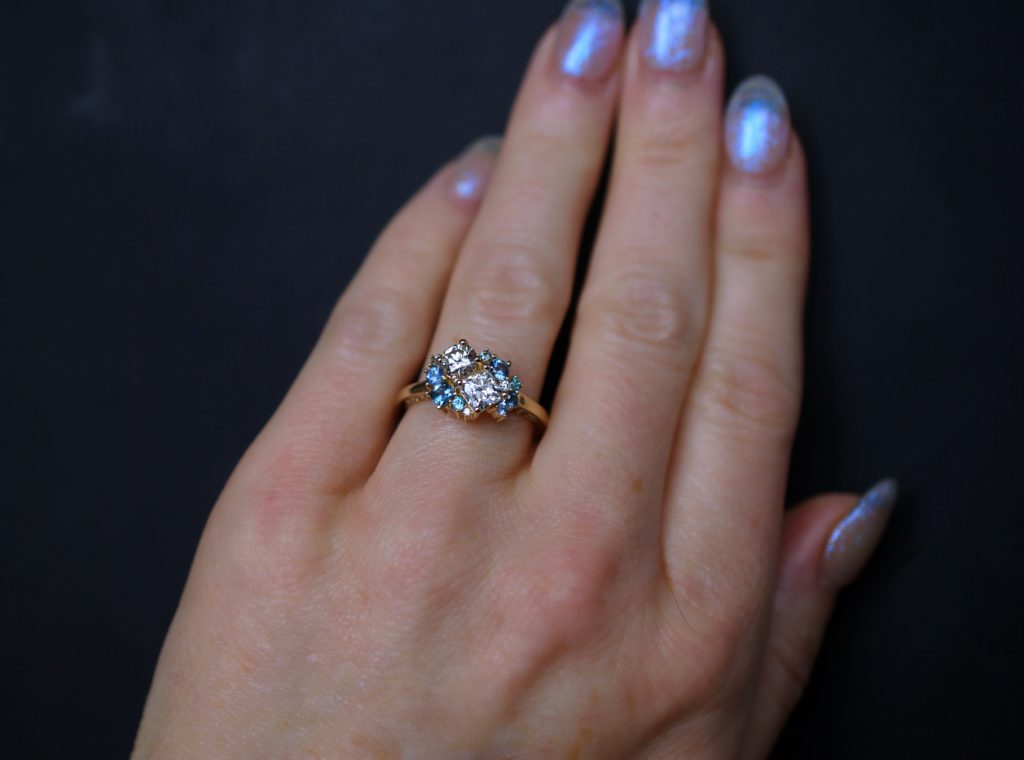
The Gail, Ocean Inspired Engagement Ring
It’s no secret that an engagement ring is a big purchase. It’s a decision that you will want to spend a lot of time on to ensure you pick the right ring for the right price. Whether you’re buying it solo or splitting the cost with your future spouse, it’s important to get a ring that you’ll want to cherish forever and pass down for generations.
Believe it or not, a recent study showed that “almost anything we do to improve our connections with others tends to improve our happiness as well— and that includes spending money”. However, with high cost items, this can get tricky. Part of loving the ring is not feeling guilty about the price tag. Here are three easy ways to ensure that you will feel good about how much you pay for an engagement ring.
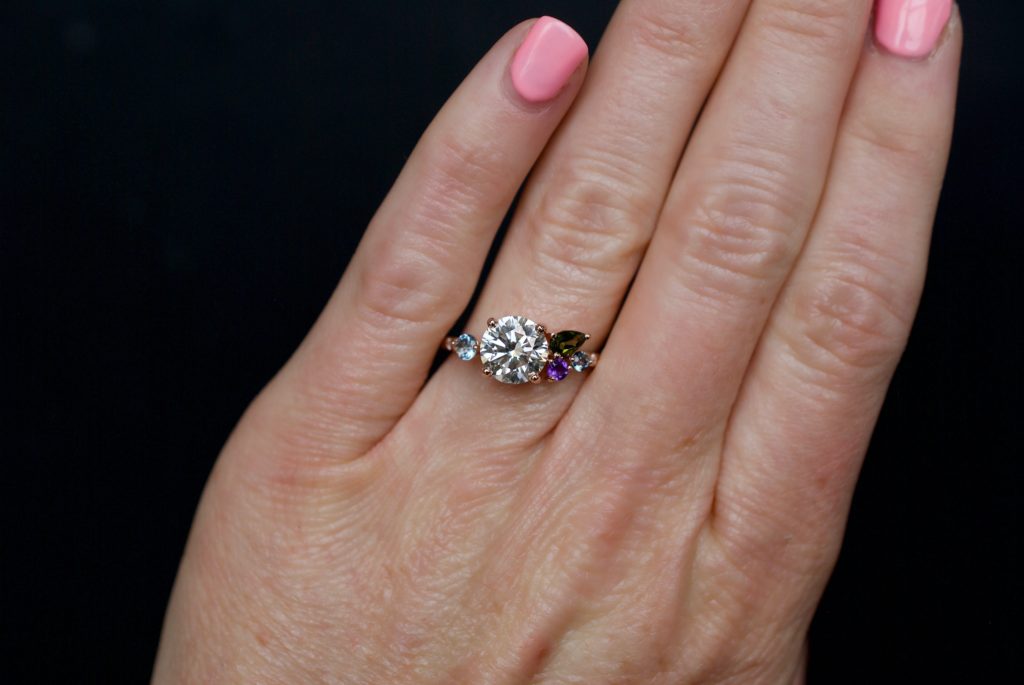
The Christie, 2 Carat Diamond and Gemstone Cluster Ring
1. Don’t Buy a Ring for the Price Tag
It’s a fact that when you buy an engagement ring, everyone will wonder how much you spent. Feeling pressure to spend a month’s worth of your salary, buy a diamond with a certain number of carats, or follow any other societal “norm” is completely normal. However, even though these things may make you feel confident in your purchase in the short run, they may not carry over into the long run.
It’s a proven fact that, “money buys happiness, but it buys less than most people think”. When you buy an engagement ring, you should make the purchase because you get to begin a new chapter of your life with your partner, and this is the symbol of that. It’s easy to get caught up in monetary value, but such a sentimental milestone deserves sentimental value. A ring that is carefully chosen and crafted to capture your love story will mean much more to her in the long run.
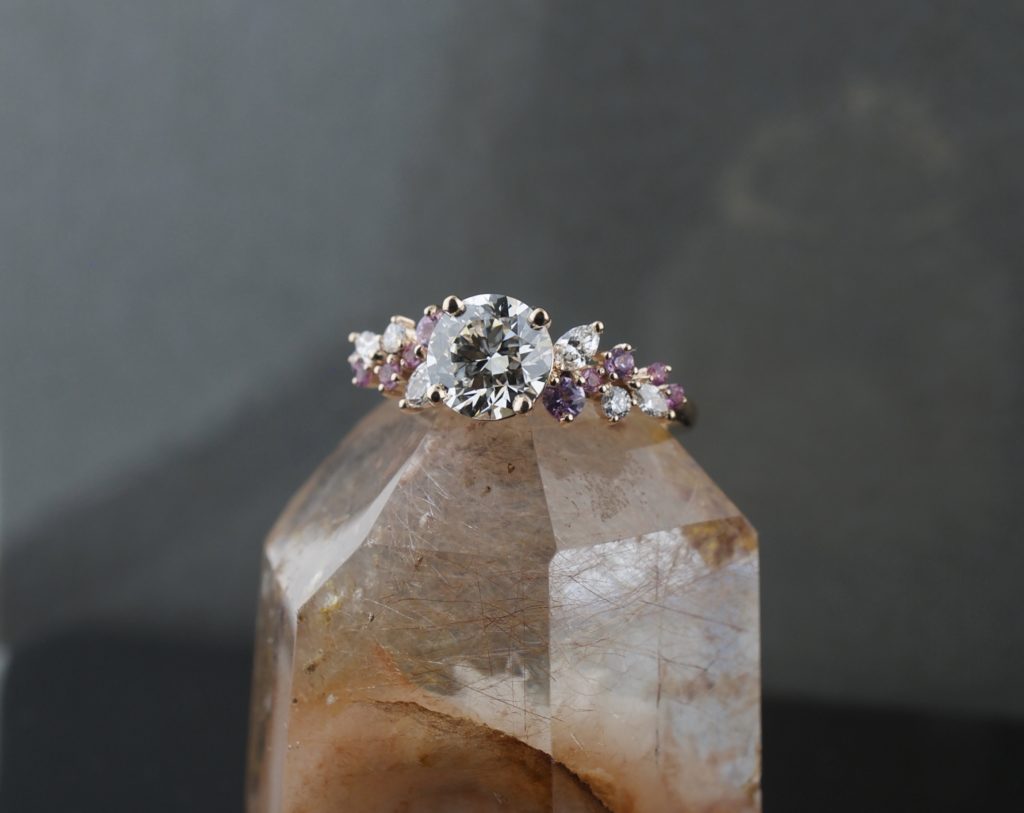
The Aleena, Diamond and Pink Sapphire Cluster Ring
2. Don’t Buy the Ring Right Away
Making rushed decisions can lead to making poor decisions. A big financial commitment means you’ll want to take the time to evaluate what’s best for you and your partner. Sometimes feeling like you want to propose can come about in moments of bursting passion and excitement. While these feelings are important, it may not be the best mindset to have when making a big purchase.
It’s proven that given more time, people will make better choices. “When people select goods for immediate consumption, they are tempted by ‘vices,’ such as fattening food and lowbrow entertainment, which produce pleasure right away but lack long-term benefits”. More time allows for you to make well thought out decisions, “delayed consumption is more likely to promote the selection of ‘virtues,’ which produce more lasting (if less immediate) wellbeing”.
Studies show that experiential purchases make people happier than material purchases. In one study, “57% of respondents reported that they had derived greater happiness from their experiential purchase, while only 34% reported greater happiness from their material purchase”. With this in mind, shopping for an engagement ring should be just as much experiential as it is material.
Buying an engagement ring from a company that takes the time to consider your values, work with you one-on-one, and create a ring that is tailored to your partner’s wants and needs will make you much more satisfied with your purchase than if you had picked a ring from a glass case on your own.
Avoid rushing into your purchase and turn your shopping experience into something that is enjoyable for you. This will make you feel much more satisfied with your purchase and it creates a memory for you to look back on and enjoy well into the future.
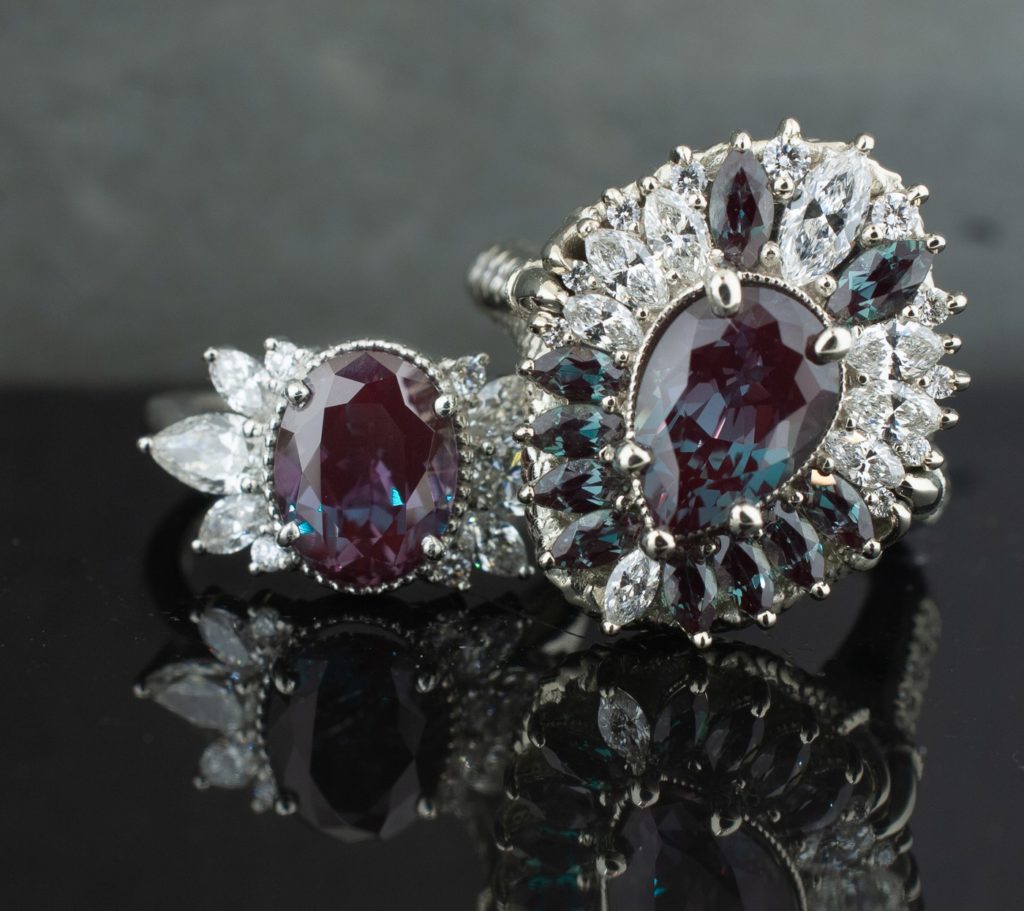
Same stones, different price ranges. The Katy and The Margo custom alexandrite engagement rings.
3. Don’t Comparison Shop… Too Much
When it comes to buying an engagement ring, comparison shopping is a big part of the process. With so many retailers, small businesses, and online stores, the options can seem endless. Studies show that while having options is important, more options don’t necessarily make your decision easier. The of making a decision is losing the opportunities that a different option would have allowed.
While it’s important to do research on what ring and retailer are best for you, comparison shopping may sometimes come at a cost. What this means is, “Comparison shopping may distract consumers from attributes of a product that will be important for their happiness, focusing their attention instead on attributes that distinguish the available options”.
With so many options, our brain needs to differentiate all of the options to keep them all straight. Because of this, “the comparisons we make when we are shopping are not the same comparisons we will make when we consume what we shopped for”. We prioritize the wrong things because we are looking at our options through such a wide lens. Be open-minded and look at a lot of options in the beginning stages. Then as you get closer to making a purchase, narrow down what design elements, metals, and stones you want in your ring so that you don’t get off track.

The Haley, Pink Morganite Engagement Ring
Using these three easy tricks will make your engagement ring shopping experience much more enjoyable and it will allow you to move forward with your engagement without any financial hesitation. When you’re ready to get down on one knee, we’d love to work with you.
Sources:
Dunn, E. W., Gilbert, D. T., & Wilson, T. D. (2011). If money doesn’t make you happy, then you probably aren’t spending it right. Journal of Consumer Psychology, 21 (2), 115-125.
Schwartz, B. (2004). The tyranny of choice. Scientific American, April, 71-75
Vedantam, S. (2016, August 23). You vs. future you; or why we’re bad at predicting our own happiness. Hidden Brain.

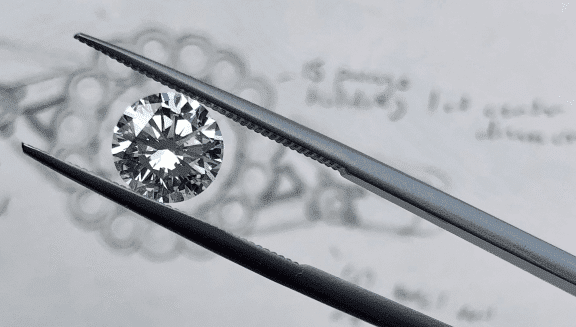
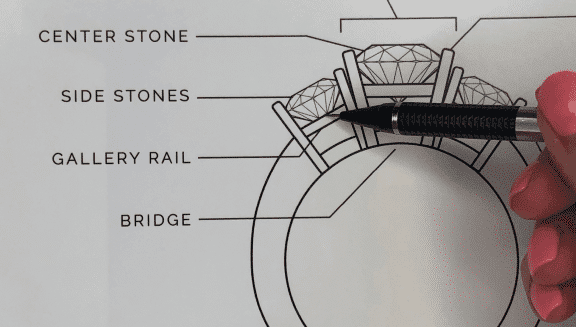

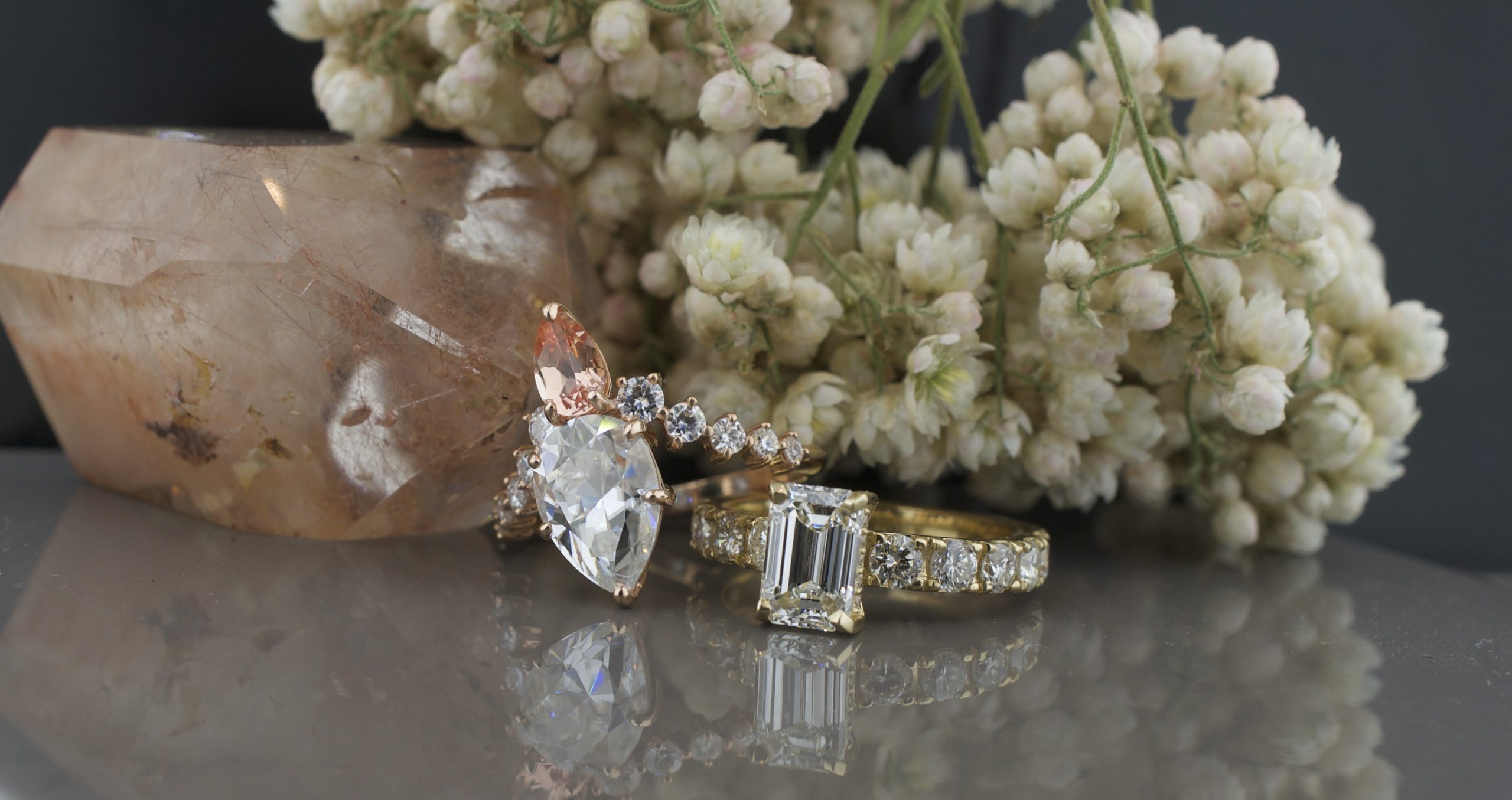

Comments